Celebrating 100 years
of PwC in Belgium
On 13 March 2021 we celebrate 100 years of delivering quality services in audit, tax, legal, consulting and deals in Belgium, with building trust in society central to everything we do.
PwC has been at the heart of national and global developments in the past 100 years. Follow our timeline from 1921 to the present day, and discover how resilience and embracing change have enabled us - and our clients - to adapt to an ever changing world.
-
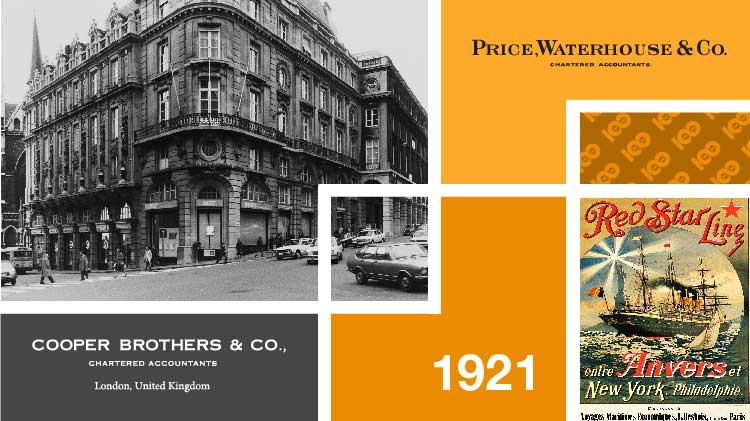 PwC Offices, Rue de la Chancellerie, Brussels - © L'inventaire du patrimoine architectural
PwC Offices, Rue de la Chancellerie, Brussels - © L'inventaire du patrimoine architectural
Our journey in Belgium begins in the ‘Roaring Twenties’, when Price Waterhouse (PW) and Coopers & Lybrand both open offices in Brussels as a strategic place to tap into the European market. For a number of years, Coopers & Lybrand is managed by the Englishman Jean-Antoine Kurten. From the start, both firms concentrate on safeguarding their trusted position and delivering quality for corporations with their cost accounting systems. The initial focus is on highly specialised technical knowledge, that will later evolve to other skills. One of PW’s first clients is Belgian shipping company the Red Star Line, which operates a regular service between Antwerp and New York.
In the next decade, audit and accounting work develops rapidly. Offices are opened worldwide, each time establishing a separate partnership in each country. The worldwide network becomes a federation of collaborating firms with specialists in a wide range of disciplines. This diversity allows us to weather the Great Depression of 1929 following the Wall Street Crash. -

Fortune magazine (US) acknowledges the growing importance of the accounting profession by devoting a major article to profile the upcoming firms. Both accounting firms start to attract the best and brightest candidates to a profession that is increasingly seen as a practical and desirable career choice.
-

Belgium adopts the ‘Plan van Arbeid’ (plan of works) by Hendrik De Man to overcome the economic crisis. Our specialists who had previously worked in audit, are now moved to the insolvency business. This agility to provide new types of services, including tax services and the early start of management consulting is a key feature of their success.
-

The Brussels Price Waterhouse office begins operating as a branch of the London office.
-
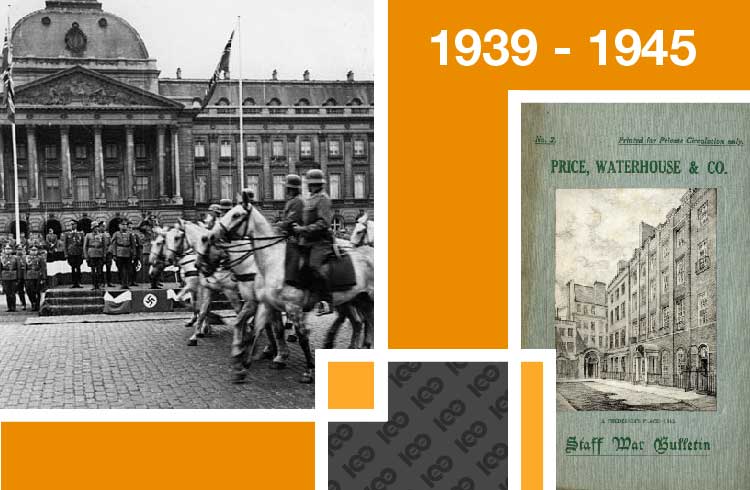 © Bundesarchiv Bild 146-1975-021-20, Belgien, Brüssel, Parade vor dem Schloss
© Bundesarchiv Bild 146-1975-021-20, Belgien, Brüssel, Parade vor dem Schloss
World War II
Price Waterhouse is appointed controller of the financial side of the Belgian shipping fleet’s transactions. As it did in WWI, the firm creates the ‘Staff War Bulletin’, an internal magazine that includes letters from members of staff with their stories from the war period to keep everyone informed and connected.
-

Partners and staff of Coopers & Lybrand worldwide number 250 in just eight offices, including Belgium, Canada, USA and South Africa. A huge increase in international business after WWII is foreseen, and it is decided that although independent, every regional firm will share a common name, stationary, standards and technical skills.
-

Internationally, Cooper Brothers is the first firm of accountants to enter the management consulting field after the war, setting up their “Organisation department”.
-
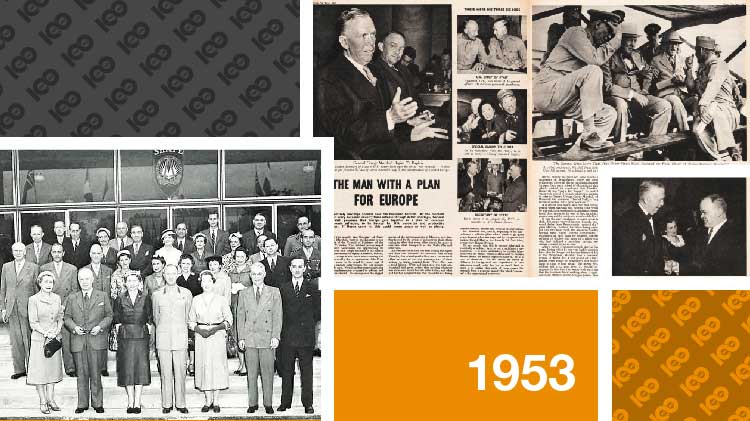
In the ‘golden age’ of the 1950s, the flow of capital into Europe from the Marshall Plan and foreign direct investment leads to further expansion. By 1953, there are 24 Partners in the Brussels office of Price Waterhouse. Both firms are increasingly committed to helping rebuild trust in the post-war period by supporting businesses in the recovery of the economic and political system.
-
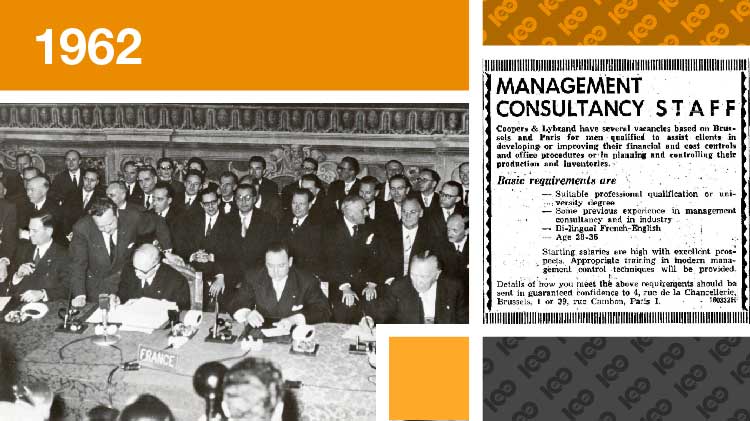
The Treaty of Rome and the establishment of the European Economic Community in 1957 heralds a new era in international trade and boosts the demand for consulting services. Cooper Brothers becomes the first of the big accountancy firms to form a separate Management Consultancy practice.
-
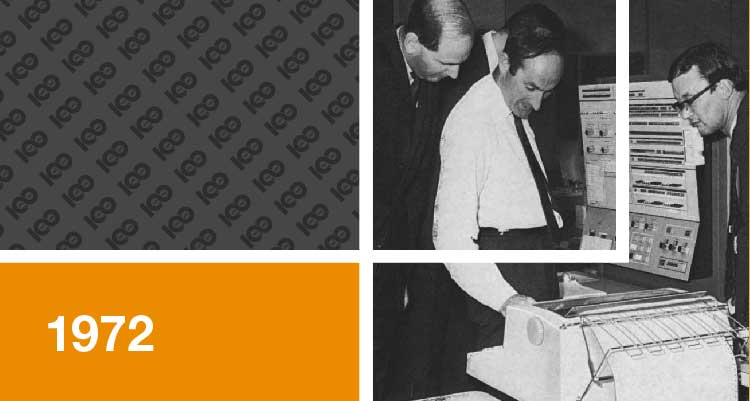
Already in the early sixties, we were a pioneer in the early use of computer technology for audits for leading corporations and government agencies. In 1972, the first computer assisted auditing techniques were used by our advisors.
-
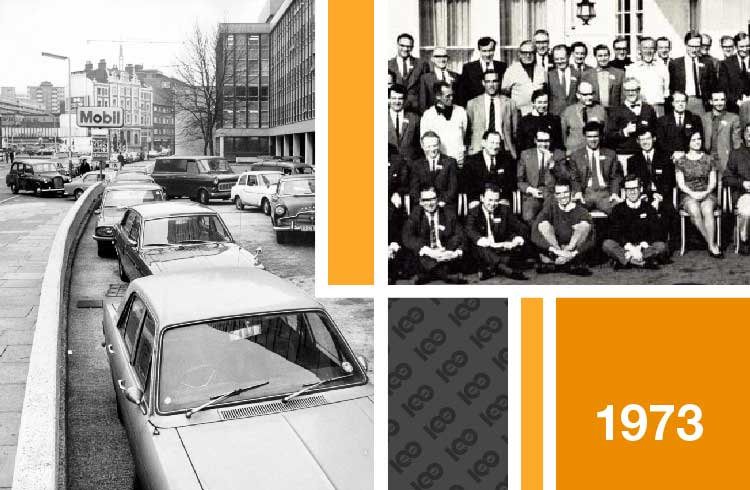
The 1973 oil crisis leads to escalating cost structures and increasing complexity. Our advisors respond by bringing clients a greater degree of certainty and control in an increasingly uncertain world.
-
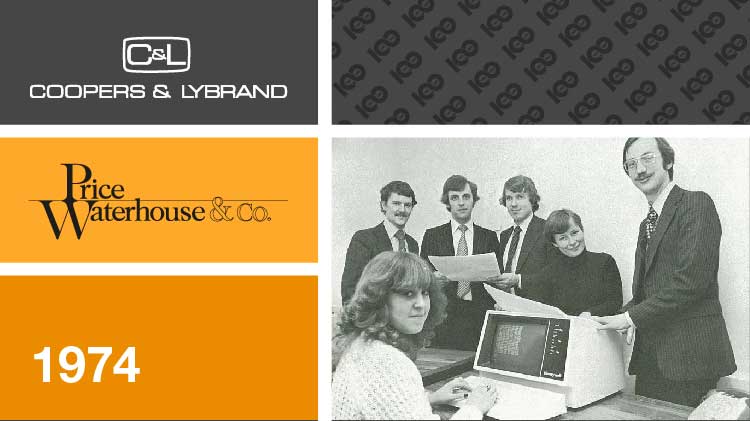
For the first time in its history, the Belgian Price Waterhouse office is run entirely by Belgian partners. By the late 1970s, the Coopers & Lybrand firms in Belgium, France, the Netherlands and Luxembourg pool their resources and are administered under one Partners’ Meeting and Executive Committee.
As well as benefiting from work referred from other firms, this so-called ‘Continental firm’ generates substantial national practices with names such as Cartier and Rhone Poulenc listed among its clients. -
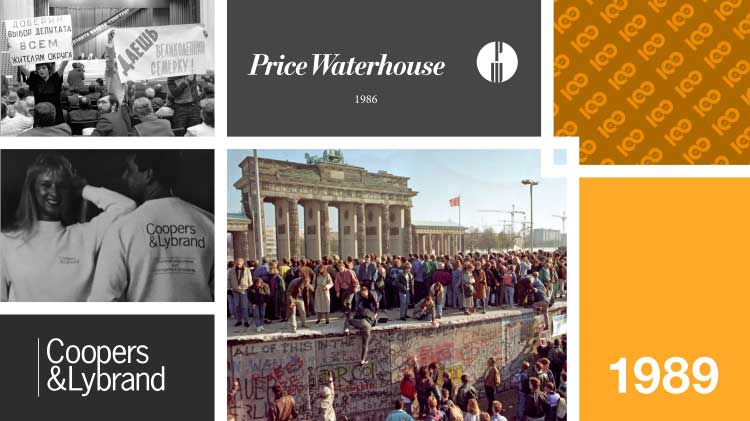
With the fall of the Berlin Wall and the collapse of the Soviet Union, Price Waterhouse organises a series of one-day conferences on ‘Perestroika and doing business in the Soviet Union’ in Stockholm, Paris, Brussels, Milan and London.
-
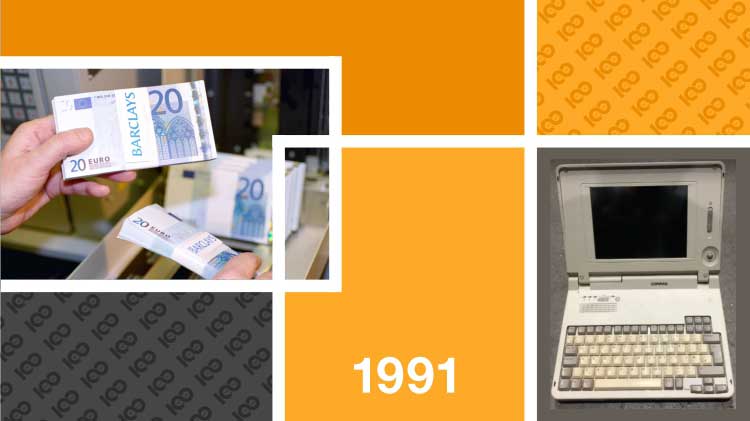
The Maastricht Treaty paves the way for the creation of a single European currency: the euro. Many Belgian companies need support in this transition, including integrated cross-border services and technology advice and expertise. Key to rising to this challenge is the creation of deeper expertise in particular industrial sectors and markets, and in the different legislative frameworks required in different countries. Building trust required us to focus on driving positive change by prompting industry innovations to become fit for the future.
-
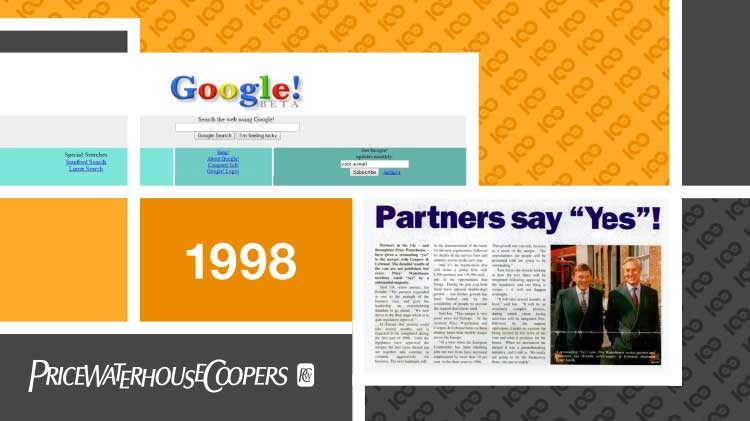
Price Waterhouse and Coopers & Lybrand become PricewaterhouseCoopers (PwC), creating a global firm with 8,500 partners and 136,500 staff. By the turn of the century, the internet is connecting people all over the world and transforming every industry. This is an important tipping point for PwC.
Our consultants become more comfortable with ambiguity and uncertainty, creating a new breed of professionals skilled in exploring and understanding complexity and the advanced use of computing. -
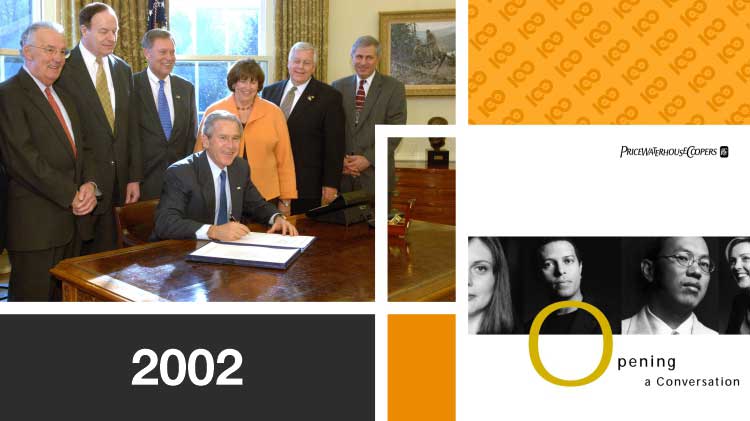
The Enron and Worldcom scandals draw media and regulatory attention to the practices of the Big Five. The Sarbanes-Oxley Act of 2002 restricts the delivery of financial auditing and consulting services, increases the accountability and responsibility of audit firms and company executives, while boosting transparency and corporate governance.
PwC sells its entire consulting practice to IBM preferring to concentrate on audit, accounting and tax services. This heralds a new era of rethinking our role in building and reaffirming trust in society. -
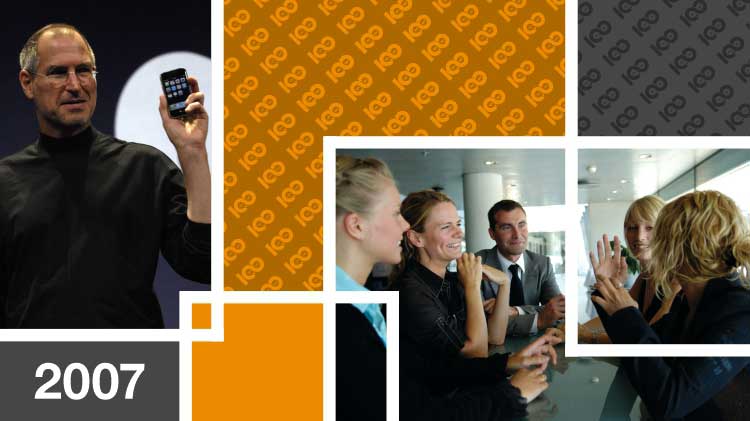
The first iPhone is released, changing how we access information. While the use and adoption of technology increases, trust in technology as a force for good starts to decline.
In this challenging context, PwC focuses on rebuilding that trust by creating the conditions for technologies to meet human needs in new ways, and put data security and privacy at the forefront. -
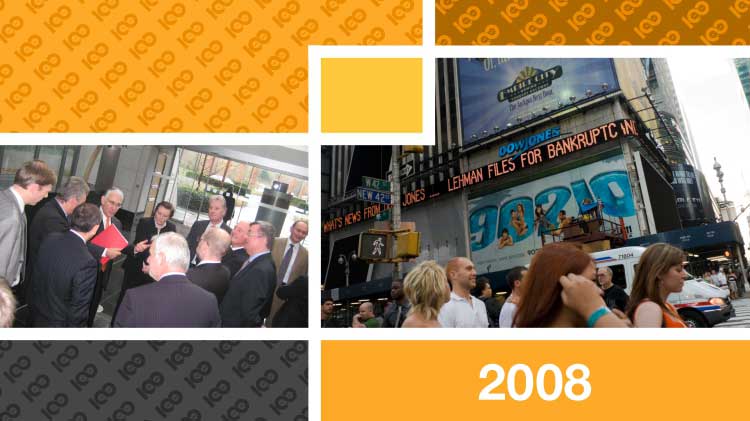
The collapse of the investment bank Lehman Brothers followed by the global economic recession leads to a loss of trust in the establishment. PwC pledges to rebuild confidence in the financial sector and business community and helps businesses increase transparency, by providing accurate information and helping them embrace reforms.
-
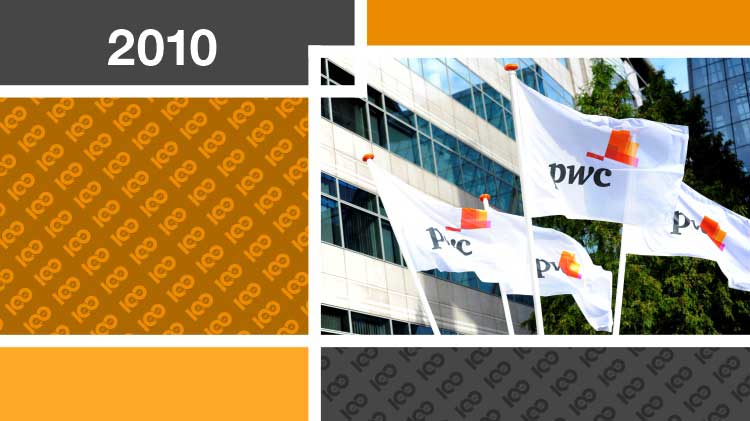
A brand repositioning is carried out and the firm shortens its name to PwC.
-

As of 2010, PwC starts to rebuild its consulting practice. Supply chain consultancy S&V and cybersecurity experts Ascure combine forces with PwC in 2011. Financial resource solutions provider Handson & Partners becomes part of PwC in 2016. In 2017, PwC also launches its strategic branch in Belgium through the partnership with Strategy&. PwC acquires Human Interface Group and ABSI in 2018 and 2019 respectively, deepening the firm’s expertise in digital user experiences.
PwC now has an almost fully self-supporting ecosystem of client projects, complemented with just a small portion of referred-in business, in stark contrast to the early years of the firm in Belgium. This leads to a reorientation of the skills of our people, who develop more interpersonal and commercial skills, in addition to their core technical skillset. -

Parts of the legal services practice are spun off to create Law Square, an independent multidisciplinary law firm for businesses and organisations, later renamed PwC Legal.
-

The arrival of the COVID-19 pandemic shakes societies to the core. Businesses and broader communities see first hand the massively disruptive effect a pandemic has on people’s health, livelihood, everyday habits and the economic fabric as a whole.
The crisis requires societies to make critical choices about the kind of economies they wish to rebuild, and PwC is at the forefront of shaping this recovery and rebuilding trust. -

Today we’re again at a crossroads. For decades, globalisation and technology worked as a system to create both economic growth and social progress, but without rethinking the alignment of these forces, the risk is that many of the trends we see now will continue and even accelerate, such as increasing wealth disparity and the erosion of trust.
In the future, PwC will have an important role to play in helping governments, businesses and communities reconfigure their systems to meet human needs and deal with these challenges. PwC will continue to adapt and reimagine its role, as it has done over the past 100 years.









